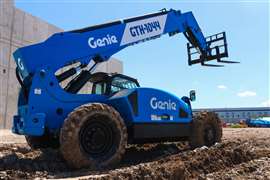Dispute boards can be an effective resolution for projects
20 July 2021
A legal opinion from construction law specialist Pinsent Masons on whether larger dispute boards are worth the extra cost
Dispute avoidance and adjudication boards are a common feature of major infrastructure and energy projects. They provide the parties with a way of avoiding disputes or if disputes arise, a way of resolving them more quickly and at lower cost than referring the matter to court or arbitration.
There are a number of different types of dispute board (DB). A dispute ‘avoidance’ or ‘review’ board is generally appointed at the beginning of a project to undertake an advisory role in relation to issues that arise during project execution. It provides non-binding advice and facilitates the parties to resolve their issues before they develop into formal disputes.
A dispute adjudication board by contrast generally carries out an adjudicator role, issuing decisions in respect of disputes referred to it. The parties generally have a contractual obligation to comply with decisions issued by a dispute adjudication board unless and until one of the parties refers the matter to court or arbitration for final determination. Sometimes these boards are set up when a dispute arises (an ad hoc board).
 A dispute ‘avoidance’ or ‘review’ board tends to be appointed at the start of a project to undertake an advisory role
A dispute ‘avoidance’ or ‘review’ board tends to be appointed at the start of a project to undertake an advisory role
They are established at the outset of a project as a ‘standing’ board. It is also becoming popular to have a dispute board that carries out both a dispute avoidance as well as adjudicator function.
Dispute boards are becoming increasingly popular on major infrastructure and energy projects, where the parties see the value of early intervention as a way to minimise the risk of costly disputes later down the line.
One of the key issues that constantly arises is whether it is best to appoint one or three dispute board members (or even more on some significant projects).
Factors in this decision will invariably include considerations around cost, time and expertise.
A common assumption is that where a dispute cannot be resolved through negotiation, arbitration or court is inevitable.
An arbitral award or court judgment may also be easier to justify to relevant stakeholders compared to a decision from a dispute board, which is generally only contractually binding.
Cost of handling a dispute
Some parties may therefore consider the dispute board process an inconvenient extra step. If they are required to go through it, they may wish to keep costs to a minimum by appointing one rather than three dispute board members.
While the cost (in terms of fees) may seem greater for a three-person board, this fails to factor in the long-term savings generated by an effective dispute board with the ability to resolve disputes before they escalate. In this way the collective thinking of three individuals may be more effective than just one.
Time needed to resolve legal wrangle
The size of a dispute board is unlikely to impact the time taken to reach a decision.
A one-person board can equally be susceptible to delays arising from the dispute board member being overworked, just as a three-person board (which in principle can share the workload among members) can be delayed by difficulties in co-ordinating diaries.
What matters is the quality of any decision and in turn its ability to mitigate the risk and costs of disputes escalating.
Expertise brings closure to disagreement
In this respect, one of the main benefits of a three-member dispute board is arguably a more balanced and informed view with the benefit of three experts’ views.
This can be critical on complex projects where a wider breadth of knowledge and experience is likely to lead to a more balanced and well-reasoned decision which the parties are more likely to accept.
Generally speaking, three (or more) minds are likely to be better than one. However, whether the parties choose to appoint one or three members, the most successful dispute boards are those where the parties are committed to the process and where the members have the appropriate level of experience and reputation.
Inspirational DB success stories
One multi-member dispute board success story was the London 2012 Olympic Games. This was a project that could not fail.
A dispute adjudication board was not strictly needed because this project benefitted from the UK statutory adjudication regime, although there was an agreed panel of adjudicators.
In addition, an ‘Independent Dispute Avoidance Panel’ was set up comprising multiple leading experts. The panel met quarterly and the chairman allocated issues to individual members. Decisions were non-binding and the parties were encouraged to reach an agreement. The outcome was that no disputes were escalated to court nor arbitration.
There is a similar success story for a single member dispute board.
A recent example concerns a major infrastructure project in Western Europe. The sole dispute board member was a leading construction lawyer with an engineering background. The dispute board was set up at the start of the project and met regularly to resolve complaints and issued non-binding written views.
The key to success was that the parties appointed a dispute board member of sufficient reputation and experience. The history was also important as the parties had previously been to court and had no desire to do so again.
Multinational law firm Pinsent Masons LLP specialises in the construction, energy, financial services, infrastructure, manufacturing, real estate and technology sectors.
The company is top-ranked for construction law by all legal directories in the UK. It has over 400 partners, a total legal team of around 1,800 people and more than 3,000 staff globally.

Click here to view the Pinsent Masons LLP website
STAY CONNECTED


Receive the information you need when you need it through our world-leading magazines, newsletters and daily briefings.
CONNECT WITH THE TEAM










